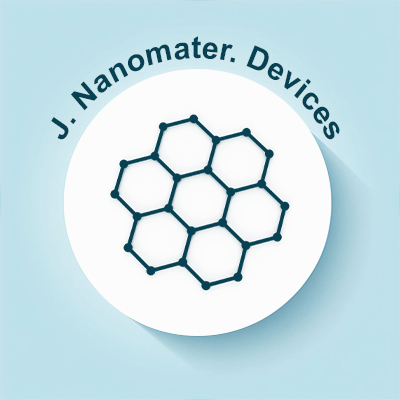
Journal of Nanomaterials and Devices
OPEN ACCESS

OPEN ACCESS
A biosensor is a device that uses a biological material, like an enzyme, antibody, DNA, hormone, or even a whole cell, to detect a specific substance. When the biological material reacts with the substance, it creates a signal—such as a change in electricity, chemistry, or light—that can be measured. An analyte is a substance, like glucose, urea, a drug, or a pesticide, whose amount needs to be measured. The main parts of a biosensor are the sensor, a converter (transducer), an amplifier, a processor, and a display screen. A sensor is a biological component, like tissue, microorganisms, cell parts, enzymes, antibodies, or DNA, that can detect specific substances. A transducer is a device that changes energy from one type to another. In a biosensor, the transducer changes the biological reaction into an electrical signal. There are different kinds of biosensors. Optical biosensors are devices that detect substances by using light-based methods, such as measuring how light is absorbed, emitted, or changes in brightness. Electrochemical biosensors are easy-to-use devices that work by measuring electric current, ion movement, or how well electricity flows through special electrodes that contain biological materials. Some biological reactions produce heat, and thermometric biosensors work by measuring this heat to detect substances. Piezoelectric biosensors work using sound vibrations, so they are also called acoustic biosensors. They are built using special crystals that create electrical signals when they feel pressure or vibrations. Biosensors are used in various areas. In the food industry, biosensors help find harmful bacteria in food. Enzyme-based biosensors are also used in the dairy industry to check the quality of milk and dairy products. In medicine, glucose biosensors are commonly used to diagnose diabetes. Biosensors are also used to detect heart diseases. Enzyme-based biosensors are used in the pharmaceutical industry to check chemical levels during the manufacturing process. Affinity biosensors are useful for quickly testing large numbers of antibodies made in bioprocesses and for checking how well different drugs work. Biosensors are widely used to detect, measure, and monitor pollution in water, air, and soil. Biosensors help in quickly and accurately detecting harmful substances in water. A new method using paper-based biosensors is being developed to check water quality.